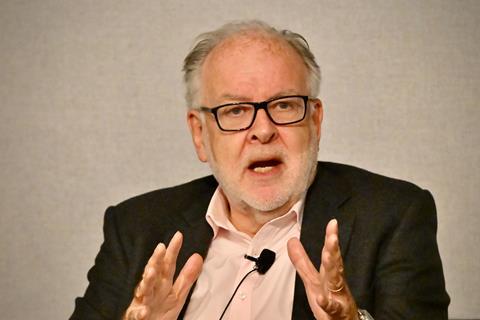Prisoners serving shorter sentences would be released earlier and less serious cases would be heard by the magistrates' courts under a criminal justice action plan prepared by a justice reform charity for the next government.
Phil Bowen, director of the Centre for Justice Innovation, said the next lord chancellor will face 'a set of challenges more daunting than any witnessed in a generation' and urgent action will be required to stave off an 'imminent' prisons crisis. The centre has been a driving force behind the widely-praised family drug and alcohol courts.
To free up potentially thousands of prison beds a year, prisoners serving a sentence of four years or less would be released after serving 40% of their sentence, instead of the current 50% (prisoners serve the rest of their sentence on supervised licence).
District judges in the magistrates' court would hear cases where the defendant faces up to two years in prison - a move that could reduce the Crown court workload by one-fifth of existing Crown court receipts. 'Administrative' cases such as TV licence evasion would move to the civil courts.

Other measures include: intensive supervision courts for children at risk of custody; deploying magistrates to hear anti-social behaviour cases in community-based locations; merging the Home Office and Ministry of Justice to bring policing, prison and probation under one roof while creating a new department for borders and asylum; new governance arrangements for the courts and judiciary; and creating an Institute for Justice (‘like an Office for Budget Responsibility for justice') to provide annual forecasts of criminal justice capacity and demand.
Former Labour lord chancellor Lord Falconer, a patron of the centre, said the report warranted serious study and consideration by the next government.
Separately, the Magistrates Association has also identified six post-election priorities. These include investing in a wider range of community sentence options, reviewing the potential for magistrates’ courts to take on greater work and reforming the Single Justice Procedure.
Association chief executive Tom Franklin said governments have tended to take 'knee-jerk' decisions that make things worse somewhere else in the system, citing Operation Early Dawn as a 'perfect example'.
This article is now closed for comment.



























18 Readers' comments